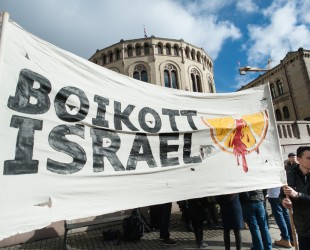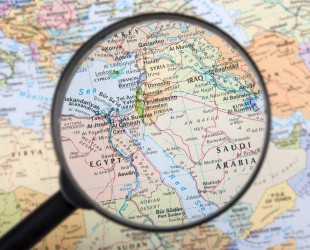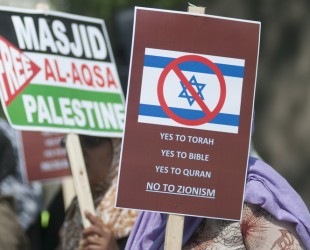Key Issue:BDS (Boycotts, Divestment, and Sanctions)
Boycotts, divestment, and sanctions are tactics of political warfare used against Israel, intended to isolate it economically, culturally, and politically.


What is BDS?
- Boycotts, divestment, and sanctions (BDS) are the tactics of political warfare used against Israel, based on the exploitation of human rights, double standards, comparisons to apartheid South Africa, and false accusations of “war crimes.”
- BDS is not an established organization or movement, but comprised of dozens of non-governmental organizations (NGOs) and radical activists.
- In practice, BDS campaigns have little success on the ground, but their effectiveness lie in their ability to penetrate the public and political discourse and blur the lines between legitimate criticism of Israel and the complete de-legitimization of Israel in the international arena.
Definitions
- Boycotts of products, culture, and academics – BDS activists lobby stores not to carry Israeli products and encourage others not to purchase them. They send letters to artists, musicians, authors, and academics, imploring them not to perform and appear in Israel or cooperate with Israeli institutions.
- Divestment from companies that do business with Israel – Distorting the concept of ethical investing and precepts of international law, NGOs accuse companies that conduct business in Israel of involvement in war crimes and other alleged illegalities. NGOs approach investors, primarily large banks and pension funds, and push for the exclusion of these companies.
- Sanctions against self-defense measures – Anti-Israel activists demand that the international community enact comprehensive sanctions against Israel – treating Israel as a pariah state. The ultimate goal is legally enforced sanctions by the UN Security Council. Other forms of sanctions include arms embargoes, which are premised on baseless charges of war crimes. Similarly, legal proceedings are initiated against Israeli officials to punish Israel for defensive actions.
BDS and the Durban Strategy
BDS is the main component of the “Durban strategy,” which was adopted by dozens of NGOs at the 2001 UN Conference Against Racism held in Durban, South Africa, and crystallized the strategy of delegitimizing Israel as “an apartheid regime” through international isolation. From this foundation, pro-Palestinian groups expanded their efforts to promote economic and cultural boycotts of Israel, particularly the call for boycott of Israeli academic institutions.
Goals of BDS
BDS seeks to end the “occupation and colonization of all Arab lands” and promotes a right of “Palestinian refugees to return to their homes and properties.” These goals undermine the fundamental right of the Jewish people to self-determination.
Demonstrating this point, one of the strategies put forth at the First Palestinian Conference for the Boycott of Israel is to “Emphasize that the BDS campaign does not only target Israel’s economy, but challenges Israel’s legitimacy, being a colonial and apartheid state, as part of the international community. Therefore, efforts are needed not only to promote wide consumer boycotts, but also boycotts in the fields of academia, culture and sports” (emphasis added).
BDS is the immoral collective punishment of Israelis and those who associate with them, undermining liberal values, such as academic freedom and freedom of expression, by restricting openness and tolerance.
BDS is the antithesis of universal human rights values, rooted in double standards that condemn a single country for isolation and pariah status. Through false comparisons to apartheid South Africa, BDS activists attempt to transform a political and territorial dispute into a question of racial discrimination.
Click here for more information on BDS
Lawfare
“Lawfare” is the exploitation of courts and international legal bodies to judicially impose boycotts and embargoes, and interfere with Israel’s diplomatic and foreign relations. NGOs engaging in lawfare seek arrest warrants against Israeli officials for anti-terror operations; file lawsuits against companies and governments doing business with Israel; lobby for cases against Israelis at the International Criminal Court; and delegitimize the Israeli Supreme Court. NGOs utilize international legal rhetoric in their campaigns to add a veneer of credibility and expertise to their political objectives. They routinely distort existing international law and also try to invent new standards in order to portray Israel as an illegal aggressor and guilty of war crimes.





